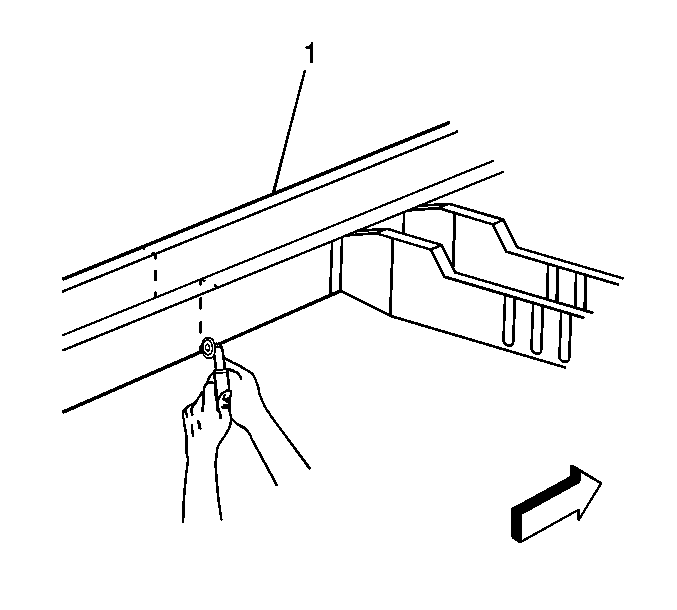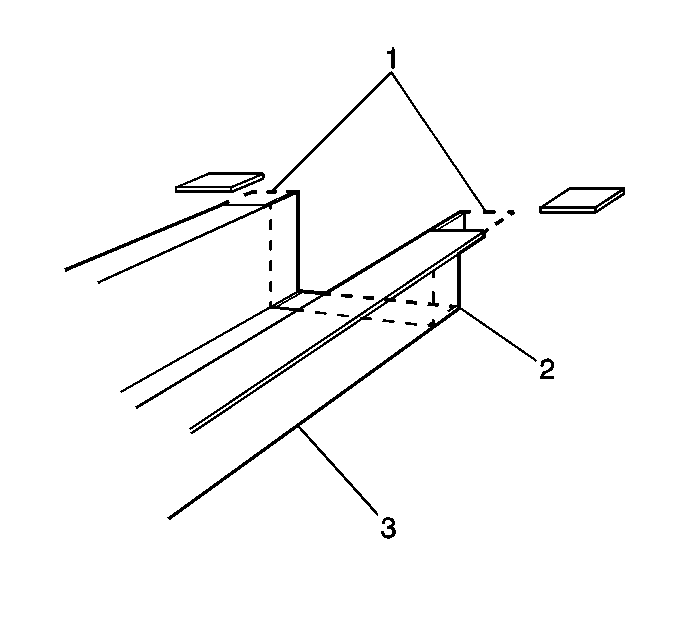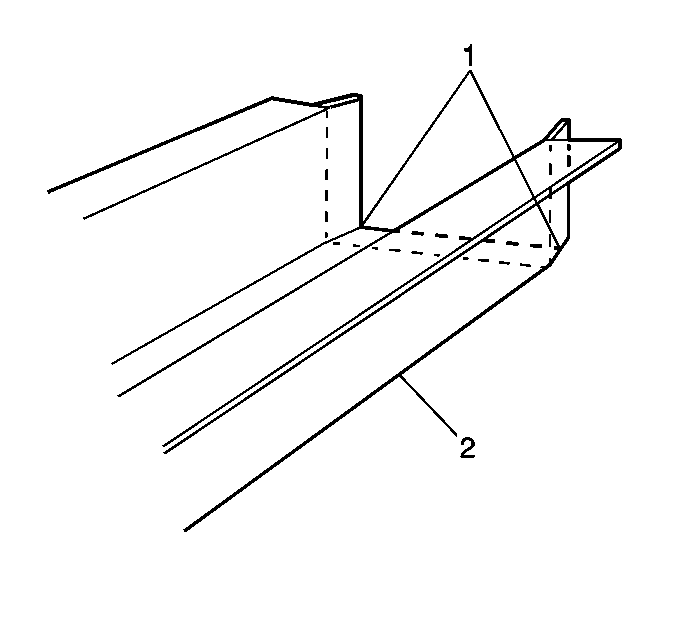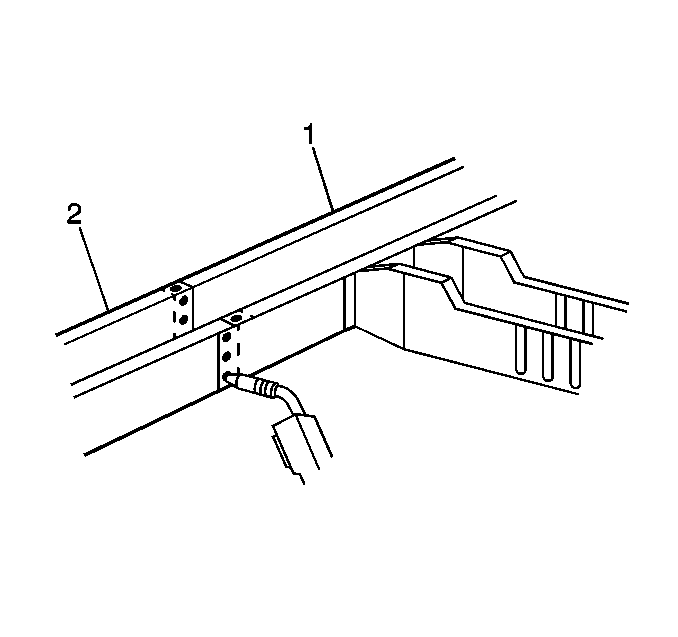For 1990-2009 cars only
Removal Procedure
Sectioning procedures can be used to repair the rear rail if just the portion rearward of the crossbar is damaged. The rails are manufactured with diemarks for sectioning location. Unique service parts are available for sectioning. The sub-assembly consists of the outer rail panel with the bumper mounting brackets attached.
- Disable the SIR system. Refer to SIR Disabling and Enabling in SIR.
- Disconnect the negative battery cable. Refer to Battery Negative Cable Disconnection and Connection in Engine Electrical.
- Remove all related panels and components.
- Repair as much of the damage as possible to factory specifications.
- Note the location and remove the sealers and anti-corrosion materials from the repair area, as necessary. Refer to Anti-Corrosion Treatment and Repair in Paint/Coatings.
- Remove the rear end panel. Refer to Rear End Panel Replacement .
- Remove the rear floor panel. Refer to Floor Panel Replacement .
- Locate the diemark in the rail.
- Use a straight edge to scribe a line around the rail.
- Cut the damaged rail (1) accordingly.
- Remove the damaged section of the rail.
Caution: Refer to Approved Equipment for Collision Repair Caution in the Preface section.
Important: If damage exceeds the recommended area for sectioning and the rail cannot be straightened, replace the complete rail.

Installation Procedure
- Locate the diemarks on the service part.
- Measure forward to add 30 mm (1 3/16 in) to the service part length, and mark cut lines.
- Cut the service part and discard the unused portion.
- Cut and remove 30 mm (1 3/16 in) from the flanges on either side (1) of the service rail (3) to create 30 mm (1 3/16 in) tabs.
- Cut 5-mm (3/16-in) wide gaps in the bottom corners (2).
- Step the tabs inward to allow the service section (2) to fit inside of the original rail.
- Weld the tabs together along the edges (1).
- Clean and prepare the mating surfaces.
- Apply 3M® Weld-Thru Coating P/N 05916 or equivalent to all mating surfaces.
- Position the service part.
- Verify the fit with 3-dimensional measuring equipment. Refer to Dimensions - Body .
- Plug weld accordingly.
- Stitch weld along the entire joint (2).
- Make 25 mm (1 in) welds along the seam with 25 mm (1 in) gaps between.
- Go back and complete the stitch weld. This will create a solid joint with minimal heat distortion.
- Install the rear floor panel. Refer to Floor Panel Replacement .
- Install the rear end panel. Refer to Rear End Panel Replacement .
- Clean and prepare all welded surfaces.
- Apply the sealers and anti-corrosion materials to the repair area, as necessary. Refer to Anti-Corrosion Treatment and Repair in Paint/Coatings.
- Paint the repaired area. Refer to Basecoat/Clearcoat Paint Systems in Paint/Coatings.
- Install all related panels and components.
- Connect the negative battery cable. Refer to Battery Negative Cable Disconnection and Connection in Engine Electrical.
- Enable the SIR system. Refer to SIR Disabling and Enabling in SIR.



Important: Properly locate and drill the holes on the bumper mounting bracket (2). Use 3-dimensional measuring equipment.
